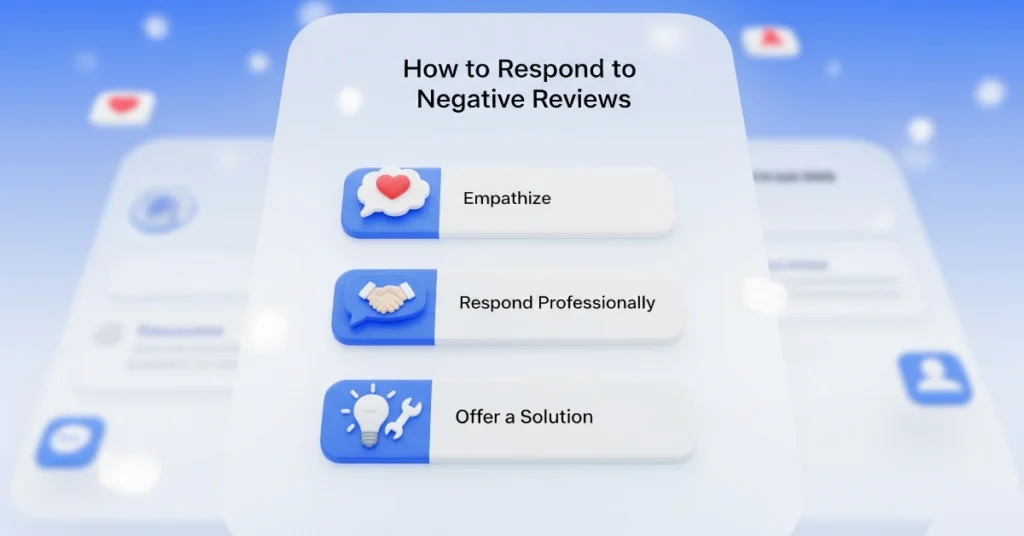In this era of the internet, local SEO for law firms is no longer optional – it is a necessity.
As a local SEO and marketing expert, I can confirm that 46% of all Google searches are seeking local information, and 76% of people who search for a nearby service visit a business within 24 hours.
Picture this: a potential client is dealing with auctioneers or has been abruptly arrested by the police, but they don’t have a personal lawyer. What will they do? They will pick up the phone to Google “lawyer near me,” and the first few firms that pop up will be their immediate choices. If your law firm misses out on these, then your competitors will keep getting more and more clients.
The solution?
A comprehensive law firm local SEO strategy.
Let me show you how to go about it.
What Does Local SEO Mean?
SEO for local law firms involves optimizing your online presence to rank higher in location-based searches, ensuring you appear when people nearby search for legal services. Unlike organic SEO, which may attract visitors from anywhere, local SEO focuses on geographic relevance. It is about making sure people in your area find your firm when they search.
A strong local SEO effort often gets you into the Google 3-Pack – those top 3 map results you see for local searches. Why is that important? Because the 3-Pack grabs nearly all the attention (in fact, 93% of local searchers click on one of the top 3 results).
Being in that elite group means more high-intent leads.
Key Benefits of Local SEO for Law Firms
After working with many attorneys on improving their online presence, I’ve seen a few evident benefits of local SEO:
Clients Search Online First
Gone are the days of flipping through phone books. Today, nearly everyone turns to Google or Bing to find a lawyer. Legal compliance can be complex, and, unless it involves a clear-cut criminal case, people may not always recognize when they need legal representation. The point is that not everyone has a lawyer on speed dial.
If your firm isn’t showing up on online searches, you’re invisible to a vast pool of potential clients.
High Intent = High Value
Local searchers often have urgent, specific needs. Someone searching “DUI attorney near me” or “personal injury lawyer in [City]” is likely ready to hire if they find the right firm. These leads have a high intent to convert.

One study found that 80% of local searches convert into customers – an extremely high conversion rate compared to traditional advertising. In other words, ranking well locally can bring you clients who are primed to call or book a consultation.
Cost-Effective Growth
Speaking of cost, local SEO might be the best marketing ROI for a small firm. Optimizing your Google profile, collecting reviews, and updating your website costs mainly time, not heaps of money. Compare that to Google Ads, where legal keywords are notoriously expensive.
Build Trust with Reviews
A strong local presence doesn’t just get you seen; it makes you credible. When your firm appears in the local 3-Pack with a bunch of 5-star ratings, clients instantly feel like they can trust you. Positive Google reviews act like word-of-mouth recommendations.
Top Keywords Customers Use to Find Law Firms Nearby
| S No. | Keywords | Search Intent |
| 1 | Lawyer near me | Find a nearby lawyer immediately for any legal need. |
| 2 | Attorney near me | Search for local attorneys in the area (same intent as “lawyer”). |
| 3 | Personal injury lawyer near me | Urgent help for accident or injury cases locally. |
| 4 | Divorce lawyer near me | Find local family law help for divorce/child custody. |
| 5 | Criminal defense attorney near me | Immediate legal defense for criminal charges nearby. |
| 6 | Estate planning attorney near me | Local expert for wills, trusts, and estate matters. |
| 7 | Immigration lawyer near me | Help with visas and immigration issues from a local lawyer. |
| 8 | DUI lawyer near me | Legal representation for DUI charges in the area. |
| 9 | Best [City] lawyer | Find a top-rated attorney in your specific city. |
| 10 | Lawyers in [City] | Browse law firms or attorneys located in your city by name. |
My observation? Most clients use “near me” or the city name in their searches. They are not searching for technical legal jargon; they want fast, local solutions. In many cases, they include the specific legal issue (DUI, personal injury, divorce) along with the location. This is why geo-targeting and mentioning your practice areas are so important.
Tip: Try typing a few of these keywords into Google for your city. See which firms show up – those are your local SEO competitors. This can give you insight into what you are up against and what “winning” in local search looks like.
6 Steps to Do Local SEO for Law Firms to Get More Clients
Ready to improve your firm’s local visibility? I have broken down the process into six actionable steps. These are the same steps I have used to help attorneys across the country dominate their local market.
Even if you implement just a few of these, you’ll be way ahead of many competitors (plenty of law firms ignore this stuff!). Let’s dive in:
1. Optimizing Your Google Business Profile (GBP)
Your Google Business Profile is your online headquarters for local SEO. It is often the first thing people see when searching for a lawyer near them, even before your website. A well-optimized GBP can make the difference between getting a call and getting overlooked. Here is how you can optimize your law firm for local SEO:
- Claim & Verify Your Listing: For starters, make sure you have control of your Google Business listing. Go to the Google Business Profile manager and claim your law firm’s profile (or create one if it doesn’t exist). Google will ask to verify that you actually represent the business, usually by mailing a postcard with a code to your office, or sometimes via phone/email.

- Complete Every Detail: Fill out every section of your GBP dashboard. This includes your NAP – Name, Address, and Phone – exactly as they appear on your website and other listings. Consistency is key (use “Suite” vs “Ste.” the same everywhere, etc.). Add your website URL, business hours, and a primary category. For a law firm, the primary category might be “Law Firm” or a specific practice area like “Personal Injury Attorney” or “Family Law Attorney.”


- Compelling Description: Write a concise, compelling description of your firm. You have 750 characters (with the first 250 or so shown before a cutoff in the interface). Use this space to highlight your services, experience, and what makes you unique – and do it in a natural, human way.

- Add Photos & Visuals: Upload professional-looking images of your office exterior (so people recognize it), your team (to put faces to the names), your logo, and maybe snapshots of you in a meeting or at community events. This personalizes your listing and helps build trust.

- Leverage GBP Features: Google offers a bunch of extra features in the Business Profile – use them! For instance, turn on Google Posts: you can publish short updates or announcements that show up on your profile (like mini social media posts). Share a recent blog article, a legal tip of the week, or a note about a community event you’re attending. These posts can attract a few more clicks and show viewers that you’re active and engaged.
You can also fill out the Q&A section – Google allows the public to ask questions on your profile. Ensure features like Messaging (letting clients message you through Google) or Appointment Booking (if you use a scheduling link) are enabled if appropriate. These convenient options can turn curious searchers into leads.
- Maintain Consistency & Updates: Treat your Google profile as a living asset. If anything changes – your office hours, your address, your phone number – update it immediately. Few things will irritate a potential client more than calling a number that’s no longer in service or driving to an office that closed early.
2. On-Page Optimization for Local Search
Even a basic site can be optimized for local SEO with a few key tweaks. On-page optimization involves ensuring that your website’s content and HTML signals align with your local goals.
- Include Location Keywords Prominently: Make it crystal clear where you practice. For instance, if you serve primarily Chicago, say so! This puts your city and service right at the forefront. Similarly, your H1 heading on the page might read “Chicago Personal Injury Attorney” or include it in a natural way. Throughout your site content, weave in your city name and related geo terms where relevant.
- Contact Info and Directions: Every law firm website needs an easy-to-find Contact Us page – this is doubly important for local SEO. On that page (and usually in the footer of your site globally), list your Name, Address, and Phone (NAP) exactly as we’ve standardized it. Embedding a Google Map of your office location on the contact page is a great move.
- Create Location-Specific Pages (if needed): If your firm serves distinct regions (or different types of clients in different places), consider making separate pages to target those. Even if you’re a single-location business, you might make pages or blog posts about specific towns or neighborhoods if you want to rank there.
- Optimize Meta Tags for Clicks: This gets a bit technical, but it’s important: the meta title and meta description of each page (these are pieces of HTML in your site’s code) are what often appear in Google search results as the title/link and snippet. Craft these carefully for important pages. Include your city and a keyword in the title, and write a compelling description that might entice someone to click.
- Site Speed & Mobile-Friendliness: Ever pulled up a site on your phone that took ages to load or was impossible to navigate? For local search, that’s a killer. Many people will find you directly from their smartphone. If your site isn’t mobile-optimized, Google will actually downrank it for mobile searchers. Ensure your website uses a responsive design (most modern law firm templates or platforms do, but double-check – pull it up on your phone and see). Also, compress your images and keep the site quick. A slow site frustrates users, and Google’s algorithm knows it.
- Local Schema Markup: This is a more advanced tip for the tech-oriented. It is a code you add to your site to give search engines structured information about your business. While schema markup itself might not directly boost rankings, it can enhance how your listing appears.
- Internal Linking with Local Anchor Text: One simple on-page SEO practice is to link between pages on your own site using relevant anchor text. For instance, if you mention in a blog post “Our Houston law office recently handled a case…”, make “Houston law office” a link to your Houston location page (if you have one).
3. Creating Local Content that Engages
Let’s face it: legal content can be dry. However, localizing your content can make it far more engaging to your audience and more attractive to search engines. The idea is to create material (blog posts, articles & videos) that both showcases your expertise and ties into your local area or the specific concerns of your community.
One of the easiest ways to start is by writing short blog posts answering common local legal questions. Think about issues that are on people’s minds in your city or state.
For example: “How do DUI laws in [Your State] differ from those in other states?” If you’re not sure what to write about, start with the frequently asked questions you hear from clients.

You should know that people love stories, especially ones that happen in their community. Without breaching any confidentiality, you can also share anonymized case studies or testimonials that highlight a problem you solved for a local client.
Additionally, embed relevant images in your blog posts (like a photo of the local courthouse, or a skyline shot of your city with a caption about serving that community). Don’t forget to include alt text to images like “Downtown Dallas skyline” or “Map of Miami neighborhoods” – this is minor SEO juice and also helps accessibility.
Tip: Stay consistent, update, and repurpose your content regularly.
4. Harnessing Client Reviews & Ratings

In the legal world, reputation is everything. And these days, your reputation is largely represented by your online reviews.
Think about how you choose a restaurant or a doctor – you probably look at the Google or Yelp rating, right? Clients do the same for attorneys. Reviews are a huge trust signal.
In fact, 71% of consumers read online reviews before visiting any local business. A collection of positive reviews can make you the obvious choice before the client even visits your website.
If you have to prioritize, focus on Google reviews. Those reviews on your Google Business Profile directly influence your Maps rankings and are highly visible in search results. A steady flow of fresh 5-star Google reviews can push your firm higher in local results and make you stand out at a glance (people trust a law firm with 50 reviews at 4.8 stars more than one with 5 reviews at 5.0 stars, for example – volume matters). Consistent 5-star Google reviews boost local search rankings and firm visibility; high volume (e.g., 50 reviews at 4.8 stars) is more impactful than perfect scores with low volume.
That said, don’t neglect other platforms entirely: Yelp is also commonly used for attorneys in some areas, and legal-specific directories like Avvo or Martindale-Hubbell allow client reviews, too. But if you’re strapped for time, Google is your go-to for review generation since it offers the biggest bang for your effort.
Attorneys often hesitate to ask for reviews – it can feel awkward. But a happy client is usually glad to share their experience if you make it easy. The simplest tactic: ask at the end of a case. When you’ve just successfully closed a matter or won a case for a client and they thank you, let them know it would help others looking for legal help if they shared that feedback on Google.
To save time, you can use tools that help automate the tasks. You can use tools such as Krofile to make it easy for customers to give you reviews, just a scan/tap, and you receive a review. You can collect reviews across all the major review platforms like Google, Yelp, TripAdvisor, and more.
Remember, reviews are a two-way street. Always reply to every review on Google (and other platforms where possible).
For a glowing 5-star review, a quick thank-you, and a note of appreciation show that you’re engaged and care.
5. Building Local Citations & Directory Listings

In local SEO terms, citations are any online mentions of your business’s Name, Address, and Phone number (NAP).
Think of them as the digital equivalent of phone book listings. Building and maintaining these citations across various sites helps establish your firm’s legitimacy and consistency on search engines like Google, Bing, and Yelp, among others.
Avvo is a big one; most attorneys have a profile there by default, so claim it and update it. Consider Justia, FindLaw directory, Lawyers.com (Martindale), and any well-known attorney listings in your country or state (many state bar associations have a member directory – ensure your entry is up to date).
Citations are a foundational local ranking factor – not as mighty as your Google Business Profile, but essential for confirming your identity and location across the web. Think of it as building trust with Google’s algorithm through repetition and consistency.
Keep a simple spreadsheet of all the listings you create. Note the site, the login details, and the current NAP info you have there. This way, if you ever rebrand, move office, or change your phone number, you have a checklist of places to update.
6. Measure the Performance of Your Website
Some of the tools that can lighten the load and help you track whether or not your local SEO strategy is working include:
- Google Analytics: Analytics can show you if people are finding your site through Google searches, and even what queries led them there (though for more detailed query data, Search Console is better – more on that in a second).
- Google Search Console: Search Console is about how people get to your site from Google. Once you verify your site (an easy process, and well worth it), Search Console provides data on search queries that showed your site, how often people clicked, your average position for those queries, etc.
- Email and CRM Reminders: If you use any sort of client email list (maybe past clients or a newsletter), plug your content there, too. It keeps you top of mind with referrals. But more to the point of SEO, set reminders for yourself. For example, use your calendar to remind you every 3 months: “Check Google Analytics & Search Console for progress” or “Quarterly citation check.”
5 Local SEO Tips for Law Firms
I have compiled a list of common best practices that can give you an extra edge over your competitors:
- Ensure NAP Consistency Everywhere – Double-check that your Name, Address, and Phone are identical on your website, Google profile, and top directories. Even your email signature and social media profiles should have the same info.
- Use Geo-Targeted Keywords in Content – Whenever it fits naturally, incorporate local identifiers in your site copy. Instead of saying “We serve all areas of practice X,” say “We serve clients throughout Orange County in practice X.”
- Earn Local Backlinks – Join a local business networking group and get listed on their site, sponsor a local charity event (they often thank sponsors with a link), and write a guest article for a local news blog or chamber of commerce. Even being interviewed or quoted in a regional publication can land you a valuable link.
- Monitor and Respond to Local Q&A Forums – People often ask legal questions on platforms like Avvo’s Q&A, Reddit, or local Facebook community groups. While you must be careful not to give formal legal advice online to non-clients, you can still be helpful in a general way. Just allocate maybe 15 minutes a week to scan for these opportunities.
- Use Calls-to-Action and Make Contacting You Easy – When those local visitors do find you, don’t make them hunt for how to reach you. Ensure every page of your site has a clear call-to-action (CTA). For instance, a banner saying “Call now for a free consultation” or a “Request a Consultation” button that leads to your contact form.
Common Mistakes the Law Firms Should Avoid
Attorneys are busy, and sometimes shortcuts or oversight can undermine your hard work. Here are some of the pitfalls I would advise you to avoid:
- Not claiming your Google profile
- Inconsistent or incorrect nap info
- Using a virtual office or P.O. Box as your address
- Keyword stuffing your firm name
- Neglecting mobile users
- Ignoring negative reviews or feedback
- Expecting overnight results (or giving up too soon)
As you implement these tactics, remember you’re not alone in the digital landscape. Our team at Krofile has built an all-in-one Digital Business Profile solution tailored for busy business owners like many attorneys. The idea is to simplify and streamline the kind of tasks we covered in this guide.







